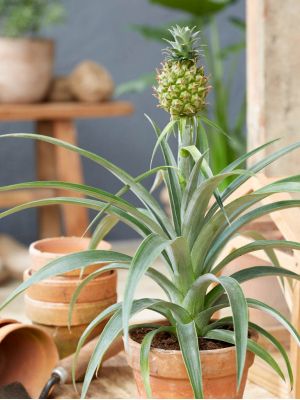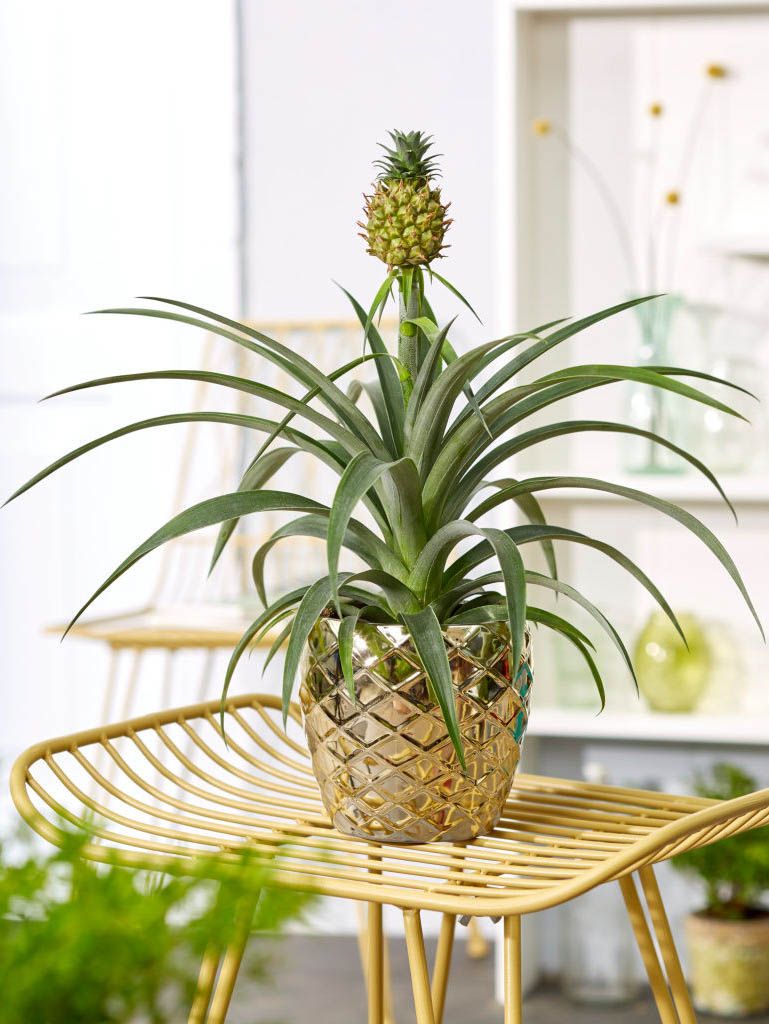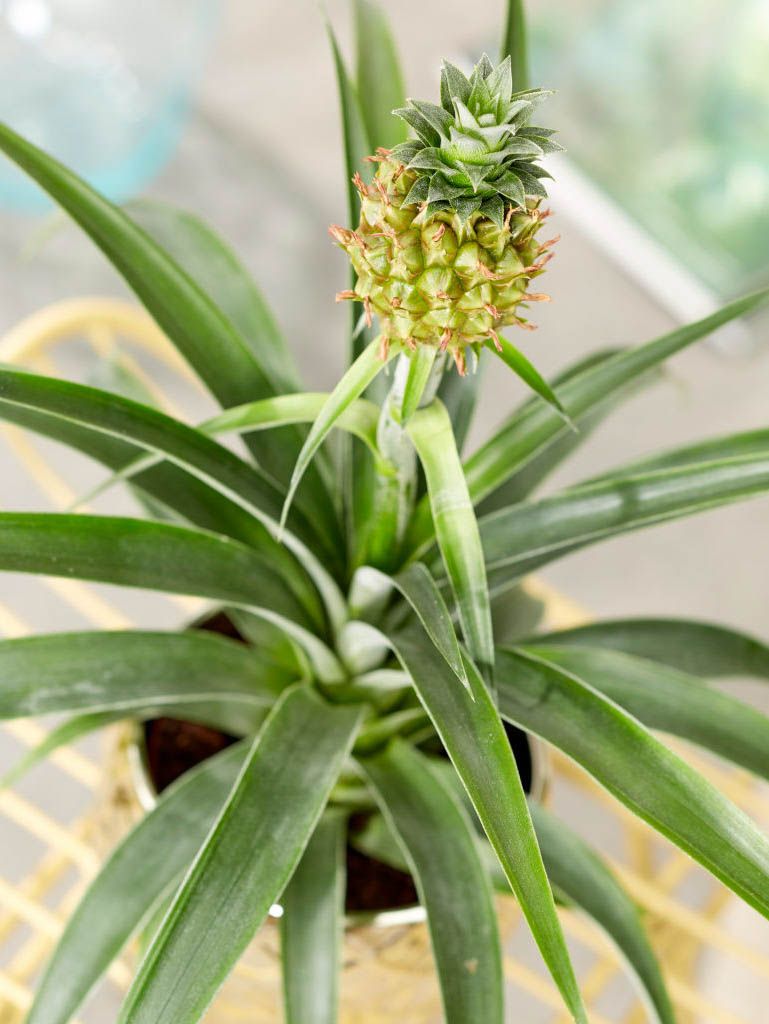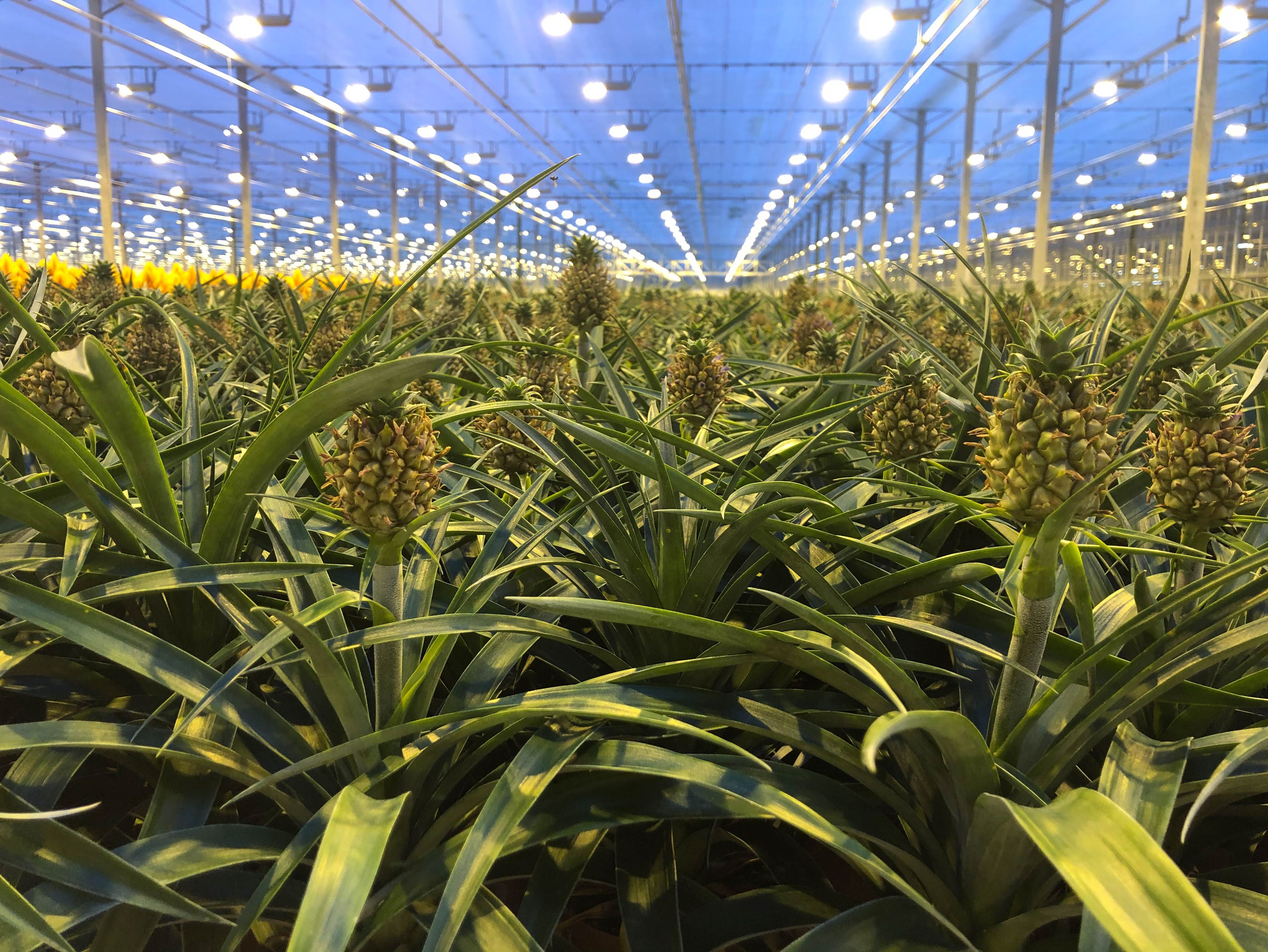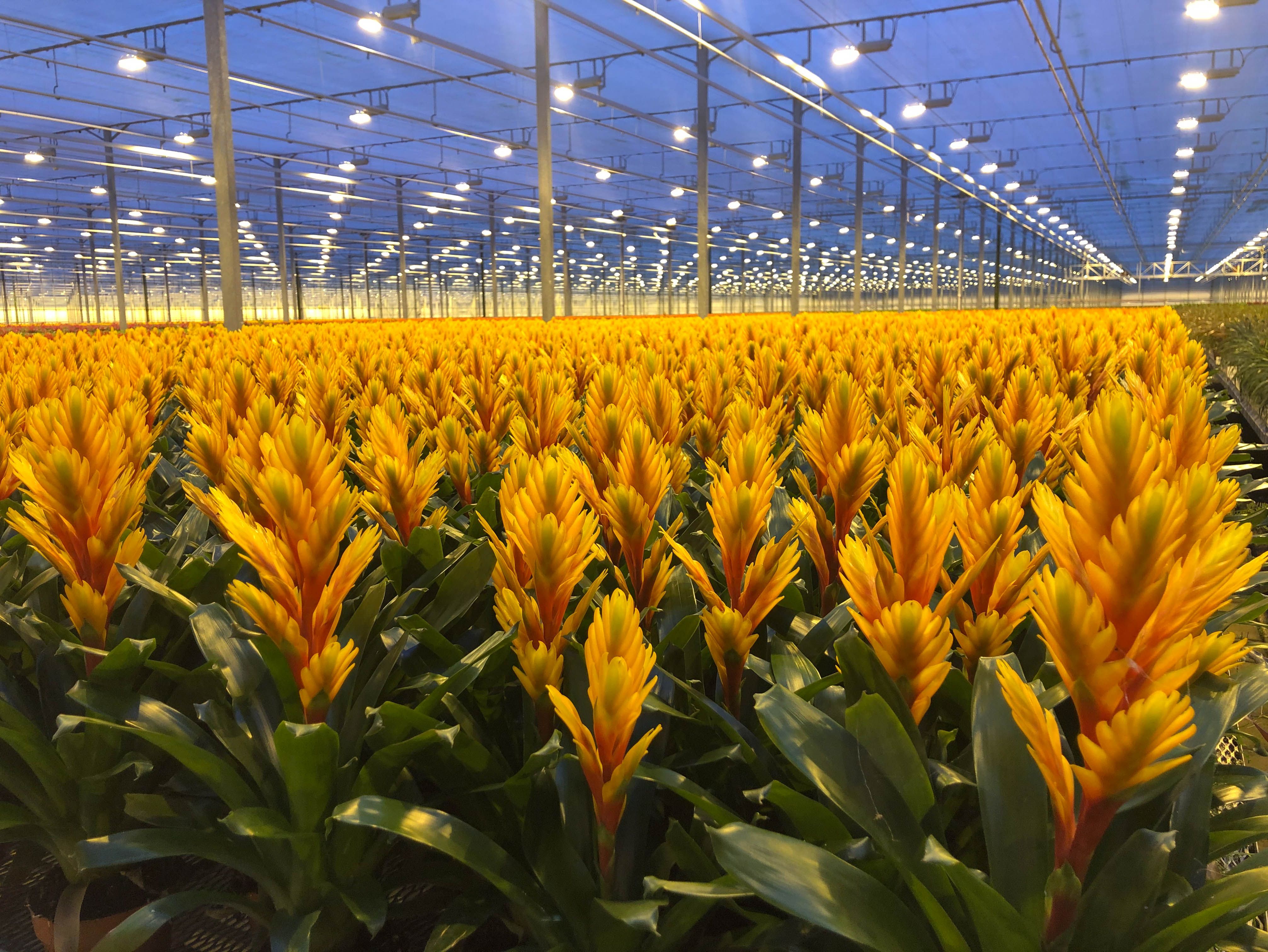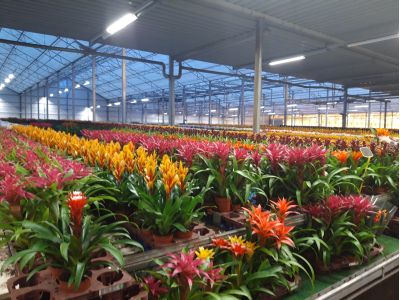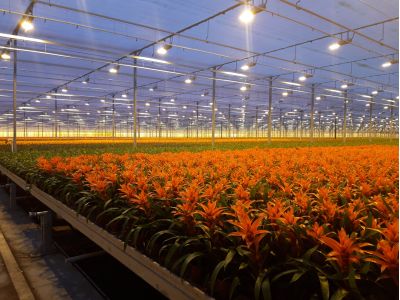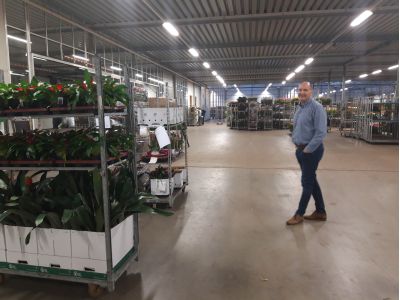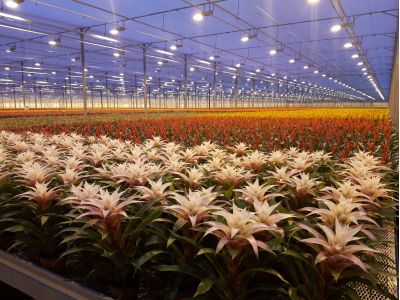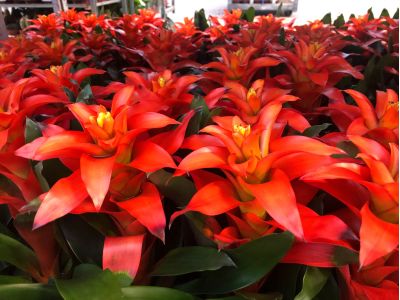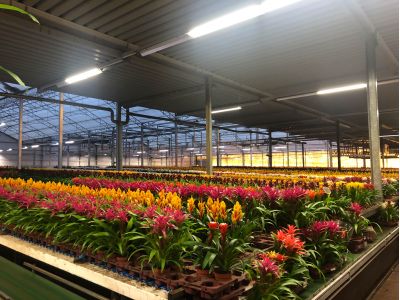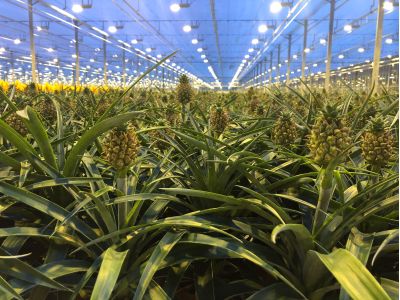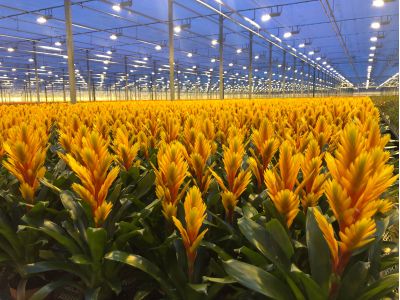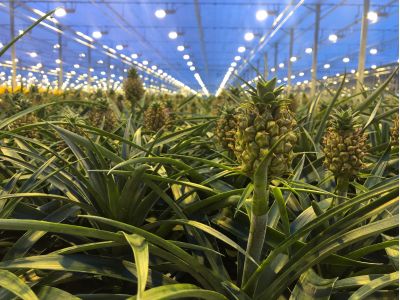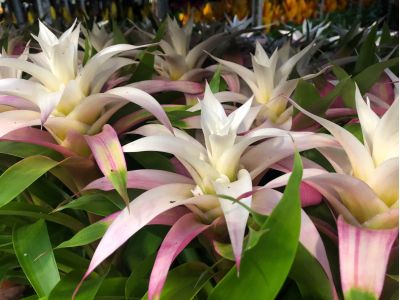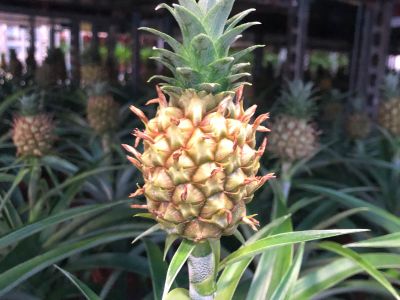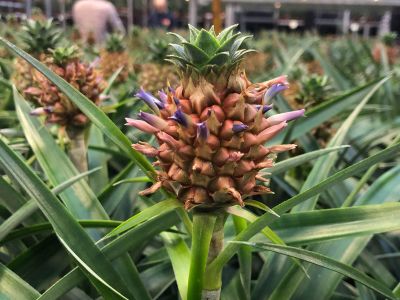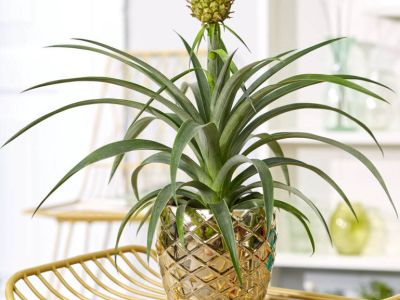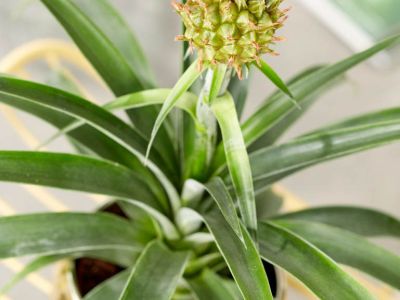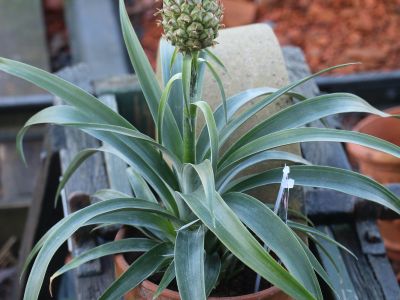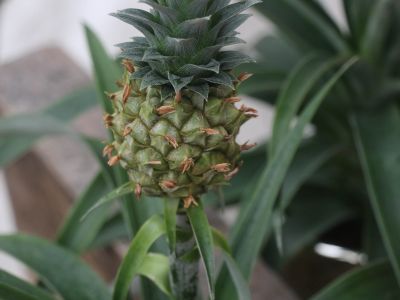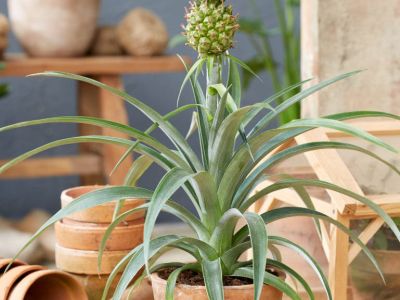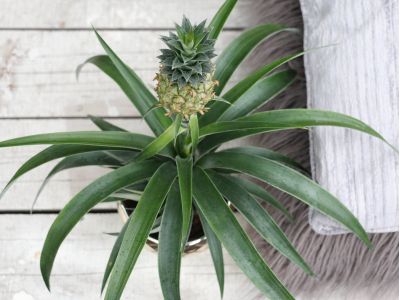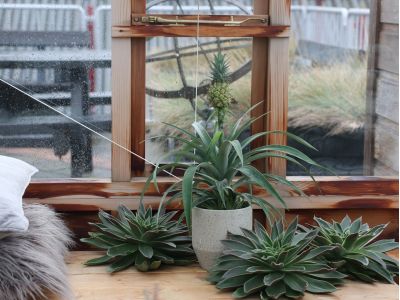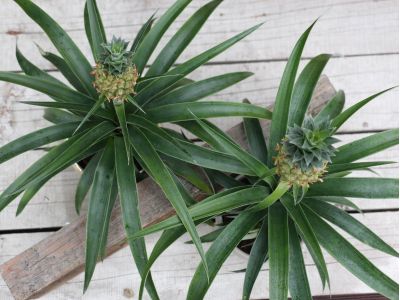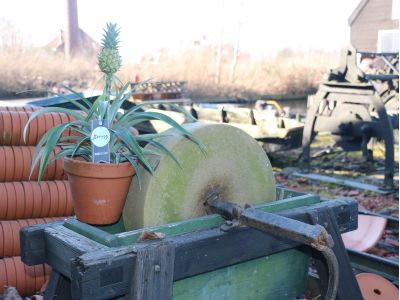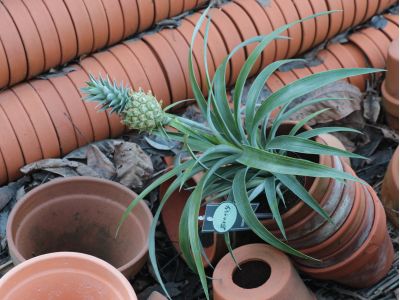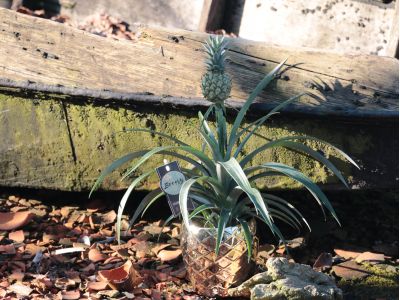Bromelia Ananas
In the spotlights
Anyone who would love to bring springtime inside their home should take a closer look at the bromeliad. This cheerfully colored plant family is easy to care for and it creates a fresh and tropical atmosphere in the living room. We visited Siegfried for what turned out to be an interesting tour of their company, during which we learned much more about a well-known trendy room and patio plant: the Bromelia "Corona".
Bromeliad family
With bromeliads you create a piece of tropical rainforest in your own home. They are sturdy, cheerful plants to look at. The colored leaves are the bracts and they often stay in perfect shape for no less than 3 to 6 months! The flowers themselves are very small and often they have already blossomed or are mostly invisible; they don’t have an ornamental value. Some varieties of bromeliads grow on the ground (terrestrial plants), others grow on trees (epiphytic plants). The leaves act as small gutters that catch the water in a rain shower. The most famous varieties from the bromeliad family (Bromeliacea) are: Vriesea, Guzmania, Tillandsia, Aechmea, Multiflower and the Pineapple.
Pineapple
Pineapple is the only bromeliad with an edible delicious sweet fruit. The bromeliad pineapple, which we highlight, is an ornamental crop with a smaller fruit. Pineapple Pacifico is a species with a redder fruit. This pineapple is not grown for consumption, so it is better not to taste it!
The snoring plant that went "Viral".
The pineapple plant provides oxygen at night instead of during the day. The graceful, pleasant-smelling plant is therefore also known as the "anti-snoring plant". When this became known last year, the plant of the Bromelia Specialist, in its signature golden pot, cruised the internet at top speed via Lad Bible and has now collected 59,000 likes on Facebook. The message went as we say "Viral." The pineapple plant was so popular; they had a hard time keeping up with the demand. Very beneficial for the nursery of course, because this nice decorative plant now still gets a lot of attention.

Care
The bromeliads originate from Brazil, around the Amazon. They prefer a nice, light spot, but try to avoid direct sunlight. Place the Pineapple in a well-lit place in the house where the afternoon sun can be avoided. The ideal room temperature is between 16 and 21 degrees.
Water this plant in the heart of the plant from which the flower grows. The plant feeds itself from this heart. Always keep it topped up; when the water has drained, add more. Bromeliads demand a medium to high humidity. They love it when you occasionally shower them with a plant spray.
The mother plant only flowers once, but the flowering period lasts from three months to six months. The plant then makes new shoots that can flower again. This is also the case with the pineapple plant. Decaying fruit releases ethylene. If you place the fruit in the heart of the plant for a while and pull a plastic bag over the plant so the ethylene doesn’t get out. This is the secret to making the plant bloom faster again.
The cultivation
Much in the company is automated, but the human eye remains very important. For example, a cultivation specialist walks through the crops every day to check whether the cultivation is going according to plan. The experienced growers, driven order processors and enthusiastic sellers do everything to make the whole world enthusiastic for the exciting bromeliad plant. As the company says: "We are fueled with bromelaid-oline".
Cooperation with three partners
The Bromelia Specialist has been in existence for 10 years. In reality this is a collective name for a group of specialists of which some nurseries have been growing bromeliads for 2 or 3 generations. The group consists of three growers: LKP plants, Bunnink Vriesea and Tobias Bromelias. Together they own 25 hectares of land. They have entered into a partnership to join forces, enabling them to deliver a total concept. They like to include their customers in the styling process and concepts development.
Sustainability
The Bromelia Specialist uses an unorthodox method to control their vermin problem; they have hired a task force consisting of ring snakes! After a mouse plague a few years ago, the company chose to use a biological control agent. Since the release of the 50 ring snakes, they have never seen a mouse again. The snakes also seem to have disappeared, but because they sometimes find a piece of skin, they know they are probably still there.
The company believes it is important to use biological control and to grow in the most sustainable way possible. Not only because of necessity, but mainly because of their passion for nature and the welfare of humans and animals. Water has been collected and reused for years. Nitrogen emissions have been minimized and packaging for garden centers and wholesalers is done in as little plastic as possible, but rather in cardboard and paper. As a result the company can proudly boast ownership of a number of impressive certifications:
• MPS production - minimization of waste
• MPS socially qualified - social entrepreneurship
• MPS GAP - product traceability
• MPS product proof - transparency in use of resources
• One location has already been environmentally certified
Breeding
The Bromelia Specialist cooperates with bromeliad breeders worldwide. They also contribute to the development of innovations within the range, trying to translate the needs from the market to the breeders, but also to identify new products for their customers.
Breeding and putting new varieties on the market is a time consuming process. It takes a year to create a young plant and after that it takes another 100 days before the plants are ready to be sold.
Special concepts
The Bromelia Specialist strives to provide tailor-made solutions for their customers. This is done by a team that is fully deployed to develop new styles and can therefore offer each customer a suitable concept.
With the “Kom in de kas” (Come into the Greenhouse) event, the company opens it’s doors for consumers. The company attracts around 15,000 visitors in a weekend. There is ample opportunity for the public to ask questions and to find out more about the product and the cultivation.
FloraPodium, 10 February 2020






